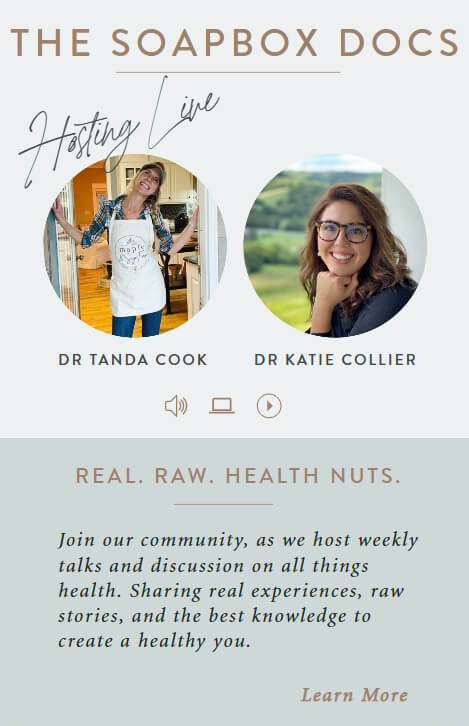Intuitive eating has taken the internet by storm. In the era of #bodypositivity, many people are searching for a way to make peace with food and their bodies and are turning to intuitive eating to help them get there.
I have a soft spot in my heart for this topic because I’ve lived it. Years of an eating disorder left me terrified of food and with a profound distrust of my body. The intuitive eating philosophy helped transform my relationship to food in the early days of my recovery.
The philosophy is based on the following ten principles:
- Reject the Diet Mentality
- Honor Your Hunger
- Make Peace with Food
- Challenge the Food Police
- Discover the Satisfaction Factor
- Feel Your Fullness
- Cope with Your Emotions with Kindness
- Respect Your Body
- Movement – Feel the Difference
- Honor Your Health – Gentle Nutrition
To summarize, the idea is to let go of diet culture, have corrective experiences with fear foods, and trust that your body knows what to do with all kinds of foods. There are no “good” or “bad” foods, there is simply food and your body needs food to survive. So, eat. Eat without guilt and settle into a body that you can trust.
I mean, in theory, that’s a HELL YEAH from me.
During those early days of recovery, I surrendered and started to eat foods I hadn’t let myself in years. I started to choose the item on the menu I really wanted, not the one that felt safe. I went on ice cream dates, and picnics in the park with all the bread and cheese I could eat. I began to heal.
I was the healthiest I’ve ever been mentally and had developed a freedom with food I truly did not think was ever going to be possible for me.
But I’m not sure I got there intuitively.
Many days I had to force myself to eat breakfast, and then lunch, and then dinner, even though I didn’t feel hunger. Days I had to remind myself that the second, third helping wouldn’t soothe my sadness.
A lot of my recovery was mechanical, set by the clock, definitely not intuitive.
And when I went to medical school I really grappled with this idea of intuitive eating and being able to enjoy all foods, in moderation, while simultaneously learning about the real life impacts food has on our body – both negatively and positively.
How could I eat intuitively and still do right by my health, can they intersect in the way that I wanted them to?
In the end, I’ve landed on another HELL YEAH.
The key to real intuitive eating means that your mind AND your body are in alignment, such that you can actually hear what it’s asking for, and that your cravings actually belong to you.
Reasons Your Intuition Might Be Off
1. Gut Microbiome
Your large intestine is home to trillions of beneficial bacteria that are integral to your health.
Gut flora play a myriad of roles in keeping you well that include appetite control, immune regulation, preventing harmful bacteria from populating the colon, synthesizing vitamins and short chain fatty acids, and communicating directly with the energy production centers of each cell in your body, amongst many more.
Things like early childhood experiences, a history of antibiotic use, a diet rich in ultra-processed foods, and chronic dieting can negatively alter the microbiome.
As the balance of good bacteria to bad bacteria gets tipped in favor of bad bacteria an abundance of health issues can ensue. Most notably on the pursuit of intuitive eating is appetite control dysregulation and sugar cravings.
The predominating bad bacteria that have populated the gut thrive on sugar and will yell at you to feed them sugar in the form of cravings. What may feel like just a sweet tooth could in fact be signals from these sugar-loving bacteria.
Eating more vegetables, fermented foods and taking a good probiotic can help to ease these cravings and recalibrate your gut flora so that YOU can begin to decide for yourself what it is that will best nourish you.
2. Hormones Gone Haywire
Hormones are some of my favorite things to treat because they are the conductors of the body. They are the things bouncing around tissue to tissue and cell to cell telling them what to do next, how much you need, and when to stop.
It’s no different with appetite control. There are two main hormones (among other factors) that influence whether you feel hungry or satiated called ghrelin and leptin respectively.
As a child you have incredible hunger and fullness cues. If you have children, or are around children often, you will notice that they are inconsistent in how much food they require. During a growth spurt they may be insatiable, and at other times they may only pick at their dinner. After a particularly active day they may be ravenous, and if they haven’t moved as much as usual, they may not be very hungry at all.
Overtime, most of you have learned to ignore your hunger-fullness cues. You may have to eat at a certain time while at school or work regardless of if you are hungry. You may deny yourself food for the sake of your newest diet or you may blow right through your fullness cues during a binge or cheat day.
The body is incredibly adaptive and over time you won’t be able to reliably trust your own hunger-fullness cues because they have been ignored for so long.
This can take some time to rediscover and often takes showing up to meals in a mechanical, regulated way. Eating at regular intervals, regardless of hunger or fullness, can help your body relearn its own ability to regulate such that you can actually trust yourself again. Over time you’ll be better able to eat intuitively based on hunger, the ultimate goal, but years of conditioning takes time and concerted effort to undo.
3. Doped out Dopamine
Dopamine is a neurotransmitter that helps the brain to recognize and feel pleasure. Because you need to eat food for survival it makes sense that it would be a pleasurable experience to ensure that you continue to eat in order to stay alive.
Enter dopamine.
When we eat dopamine is released in the brain to essentially reward us for eating. But not all foods are created equally when it comes to the amount of dopamine excreted. During our hunter gatherer days, it would be rare to come upon a food source rich in carbohydrates and sugar that provides us with a lot of quick energy. So, when humans would be lucky enough to stumble upon a fruit tree overflowing with fruit, they would eat a lot of it in one sitting because they didn’t know a) when they would find such a treasure next and b) they wanted to capitalize on the opportunity before other humans and animals started eating from the same tree.
To encourage us to binge on carbohydrates, they brain gets a surge of dopamine and feels immense pleasure. In a world where food is abundant, and carbohydrates and sugar are readily available, this ancestral response is outdated yet still very much intact.
Dopamine is also the neurotransmitter related to addiction. Pleasure centers in the brain light up in response to heroin and cocaine similarly as they do to sugar. So, it’s possible that an addiction to sugar and starches is driving the ship, hijacking your ability to eat intuitively.
This is not a hit piece on sugar, the idea is not to create MORE fear around any particular food, it is meant to help you become aware of the physiological factors that may be influencing your decision.
Sometimes, you may just want something sweet to eat. And that is OK!!
4. Your Body is a Battlefield
Emotions are hard.
They can be really pleasurable like when we feel joy, but they can be really painful too. And most of us want to avoid the painful feelings as much as possible.
It’s why we watch television for hours on end, or have that extra glass of wine, or eat the whole tub of ice cream, or smoke a joint. We will do almost anything to help us cope, and our vices help to get us OUT of our bodies and AWAY from our feelings.
The body then becomes a place that feels unsafe, like if you were to really actually check in with it you might open the flood gates of suffering and drown in their wake.
So then it becomes impossible to do anything intuitively because we are so disconnected from the body.
When is the last time you slowed down, took a deep breath, became present to the felt experience of RIGHT NOW and asked yourself what you need in this moment?
This is the practice of embodiment, of being able to drop into our bodies and get curious about how it’s feeling and what it’s processing.
And it’s a practice. At first it may be excruciatingly emotional, but in time, with practice, and perhaps the help of a professional it becomes easier.
And when you can really be with yourself, you can begin to strengthen your intuition and your connection to your body so that nourishing it becomes an innate knowing guided only by you, and you alone.
References
- 10 principles of intuitive eating:
https://www.intuitiveeating.org/10-principles-of-intuitive-eating/ - Dopamine and sugar:
https://pubmed.ncbi.nlm.nih.gov/15987666/
https://pubmed.ncbi.nlm.nih.gov/11733709/
https://pubmed.ncbi.nlm.nih.gov/21243471/ - Gut flora and appetite regulation:
https://pubmed.ncbi.nlm.nih.gov/27616451/



